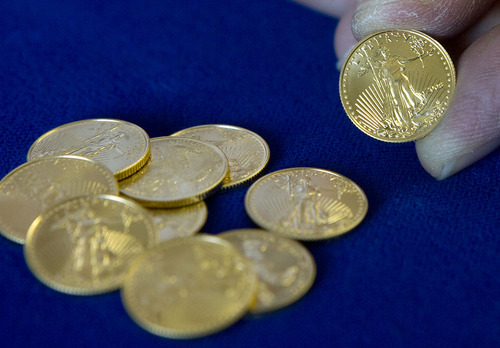This is an archived article that was published on sltrib.com in 2014, and information in the article may be outdated. It is provided only for personal research purposes and may not be reprinted.
It certainly wouldn't be the first time the interests of an American Indian tribe lost out to a few white guys looking for gold.
In this case, white guys who want to dig up tons of rocks in Utah's west desert and pour 100,000 gallons of a cyanide solution a day on those rocks in order to extract some gold and silver. For about six years. Followed by three years of site cleanup and, everyone promises, remediation.
Taking away the gold, silver and profit and leaving behind, what?
The Bureau of Land Management has approved the plan of what is to be called the Kiewit Mine in the southwestern corner of Tooele County. Developers have cobbled together 100 acres and change on a mix of federal, state and private land lying northeast of the reservation of the Confederated Tribes of the Goshute.
The Goshutes were, and remain, opposed to the plan. They argue that the mine would be both a cultural and an economic affront to the tribes, ignoring their historic ties to the land and their interests in protecting big game animals, important because some tribal members earn a living as hunting guides.
Mining was once common in the area. Gold and silver are certainly in high demand. There is money to be made, jobs to be created and, one might argue, an advantage in seeking those precious minerals in a place where there are more environmental and legal protections than exploiters encounter in many poor, corrupt Third World nations.
But the reason to listen to the Goshutes in matters such as this is the simple fact that they, and their descendents, are planning on living in the Utah-Nevada border area for generations to come. By definition, the operators of the Kiewit Mine are planning on being in and out in a decade or so, with no more concern for the land they leave behind than the state and federal governments impose upon them.
Which often, in Utah, ain't much.
This is the battle that has been fought all over Utah — all over the American West — for generations.
On one side, the extractive economy, which by its nature will always be a boom-and-bust cycle that enriches a few and leaves the natives — aboriginal or immigrant — to pick up the pieces.
On the other side, people who love the land as it is and recognize its eternal ability to provide both spiritual and economic sustenance for those who are able to see and protect it.
In the long run, if the Indians lose, we all do.



